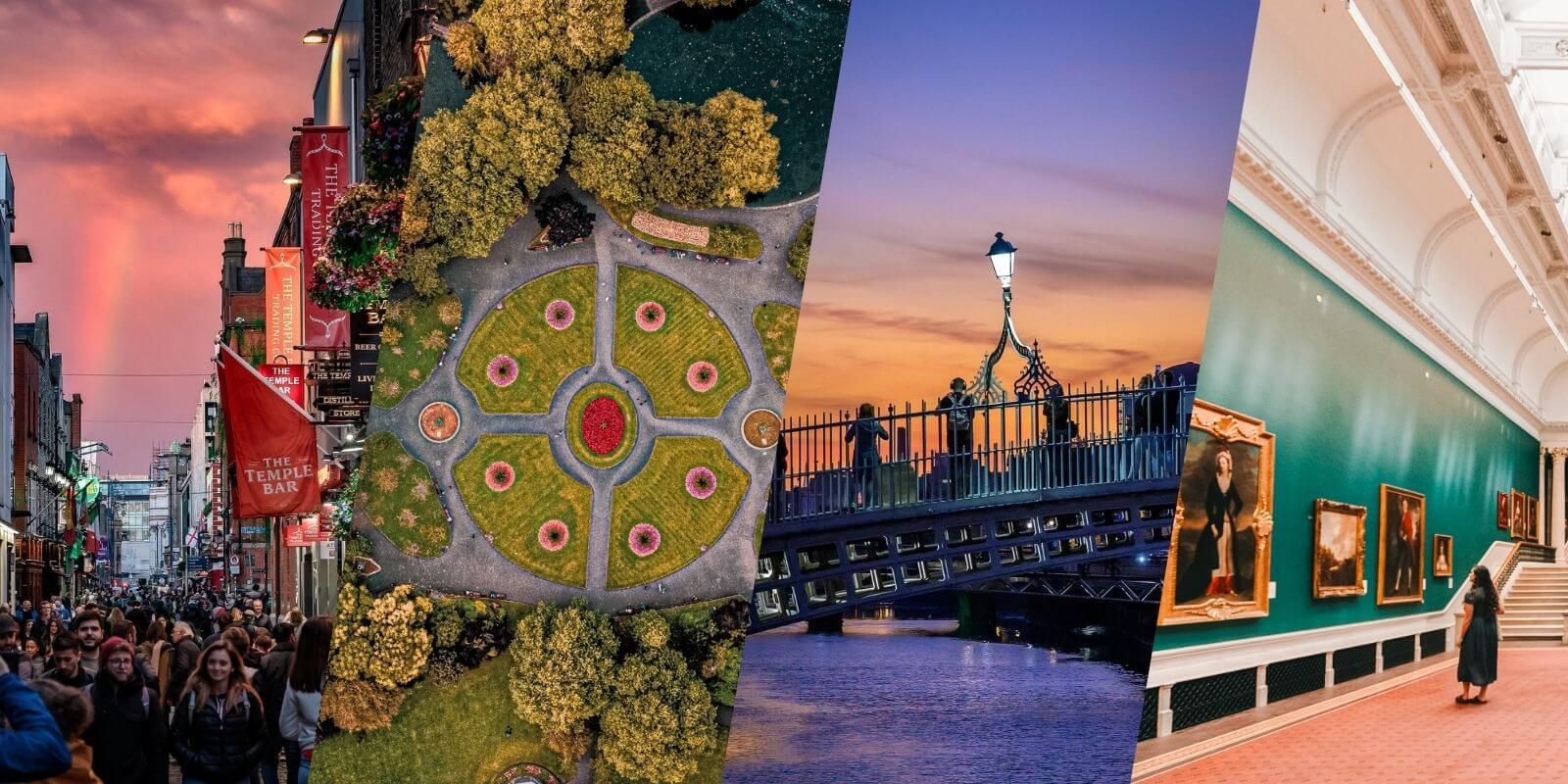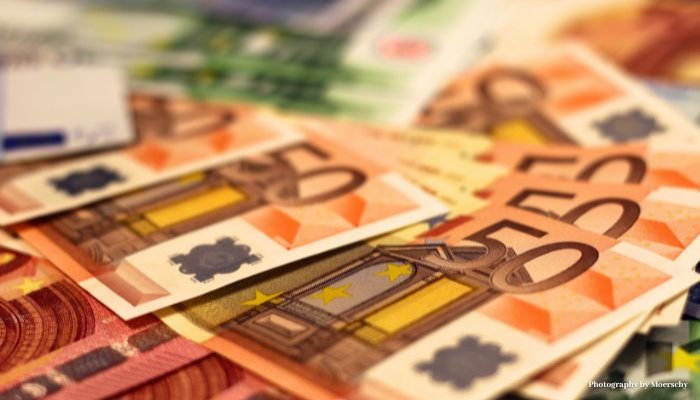Is Dublin Expensive in 2025? A Budget-Friendly Breakdown:
-
Dublin remains one of Europe’s pricier capitals in 2025, mainly due to high demand, a booming tech and tourism scene, and rising property prices. Accommodation, dining, and transport have all seen cost increases, making planning essential for budget-conscious travellers.
-
Budget travel in Dublin is absolutely possible with smart choices like hostels (e.g. Gardiner House Hostel or Garden Lane Backpackers), early bookings, off-season travel, supermarket meals, lunch deals, Leap Cards for public transport and free or low-cost attractions such as Trinity College walks or DublinBikes.
-
Key expenses are easy to manage with proper planning, including €30–€120 per night for budget stays, €8–€20 for meals at casual spots or self-catering, and €10–€40 for transport cards. Even top attractions like the Guinness Storehouse or Book of Kells offer value, especially when paired with free alternatives and local tips.
Thinking of visiting Dublin this year? You’re not alone and you’re definitely not the first to ask: “Is Dublin expensive?” The short answer? Yes, a little bit. But like everything in life, it depends on how you do it.
Whether you’re a backpacker on a shoestring budget, a couple planning a romantic getaway or a family booking a summer escape, understanding the true cost of visiting Dublin in 2025 can help you enjoy it fully without draining your bank account.
Let’s dive into what makes Dublin one of Europe’s pricier destinations and how you can still make it work, even on a budget.
Why Is Dublin So Expensive in 2025?
Dublin is a vibrant capital packed with culture, music, history and craic (fun). But over the past few years, it’s become increasingly expensive and it’s not just your imagination.
What’s Driving the Price Up?
-
High demand and limited supply: Dublin is booming. Tourism, tech companies and students are all competing for space.
-
Post-pandemic and Brexit impact: Supply chain issues and rising operating costs have affected everything from food to hotel services.
-
Real estate pressures: Rising property prices mean higher rent, which hits hotels, restaurants and shops, and that trickles down to you, the traveller.
But don’t worry! Understanding the cost landscape just helps you budget smarter. Let’s break it down by category.
Accommodation Prices: What to Expect in 2025
Accommodation is where most of your money will go in Dublin. Prices have risen across the board, whether you’re booking a luxury suite or a bunk bed in a hostel.
Luxury Hotels (City Centre)
Average Cost: €400 – €600+ per night
If you're dreaming of five-star comfort, iconic spots like The Merrion or The Shelbourne will give you a true luxury experience (at a price).
Mid-Range Hotels
Average Cost: €150 – €300 per night
Reliable names like Clayton Hotels, Maldron or stylish boutique hotels offer comfort without the premium price tag of the city’s top-tier properties.
Budget Hotels & Hostels
Average Cost: €30 – €120 per night
Backpackers and budget travellers love Gardiner House Hostel (D1) and Garden Lane Backpackers (D8). You’ll find shared dorms and private rooms for much less, especially in the off-season.
Airbnb & Short-Term Rentals
Average Cost: €90 – €200+ per night
A great option for couples or groups. It’s usually cheaper if you stay in neighbourhoods like Rathmines, Drumcondra or Phibsborough. Still close to the centre with good bus and Luas connections.
Pro Tip: For the best deals, book well in advance (I mean it), especially if you're coming during the summer or for major events like St. Patrick’s Day. You’ll also save by visiting during quieter months like January, February or November.
Dining Out in Dublin: From Fancy to Frugal
Dublin is full of flavour, whether you’re enjoying high-end tasting menus or grabbing a quick bite between sights. From Michelin-starred restaurants to budget-friendly takeaways and supermarket meals, the city caters to every taste and budget. If you're travelling on a budget, knowing where to eat and how much it’ll cost can make a big difference. Here’s what to expect when dining out in Dublin in 2025:
Fine Dining
Average Cost: €100 – €200+ per person
Looking to treat yourself? Dublin’s fine dining scene is world-class. Book a table at Chapter One, Patrick Guilbaud or Glovers Alley for an unforgettable culinary experience with seasonal tasting menus, paired wines and elegant service.
Mid-Range Restaurants
Average Cost: €25 – €50 per person
Perfect for casual dinners or relaxed date nights. Try The Woollen Mills for Irish favourites with a twist, Bunsen for one of the city’s best burgers or Elephant & Castle for their famous spicy chicken wings.
Cheap Eats & Takeaways
Average Cost: €8 – €20 per person
On the go or trying to stretch your euros? Grab a burrito from Boojum, a burger from Supermac’s or head to one of the city’s many food trucks for falafel wraps, ramen or toasties.
Self-Catering & Supermarkets
Average Cost: €4 – €10 per meal
If your accommodation has a kitchen, pick up groceries at Lidl, Aldi, Tesco or Dunnes Stores. You can whip up simple meals or grab affordable pre-made options. Great for breakfast or late-night snacks.
Money-Saving Tip: Look out for lunch deals and early bird menus (served before 6.30pm). These offer smaller versions of main meals at a fraction of the price and are a great way to enjoy top spots without paying full dinner prices.
Transport: Getting Around Dublin on a Budget
Dublin is a compact and walkable city, which makes exploring its main attractions easy and enjoyable. But when your feet need a break or you want to venture a bit further, there are plenty of budget-friendly transport options available. Whether you're here for a quick visit or staying a week, it's smart to plan ahead and choose the best ways to get around without spending too much. Here’s a breakdown of what transport in Dublin might cost you in 2025:
Bus Fares
Average Cost: €1.50 – €2.60 per journey
Using a Leap Card will save you money compared to paying in cash. Fares vary depending on the distance, but most city centre trips are on the lower end of the scale.
Leap Visitor Card
Cost: €10 (1 day), €19.50 (3 days), €40 (7 days)
This is one of the best options for tourists. The card gives you unlimited travel on Dublin Bus, Luas trams and DART trains across the city and surrounding coastal towns. You can pick one up at the airport or many city locations. It’s simple to use and offers great value.
Want to learn more about how the Leap Card works? Discover it here.
Taxis
Average Cost: €10 – €20 for a short trip
Heading to or from the airport? Expect to pay around €30 or more. Taxis in Dublin are convenient, but not the most budget-friendly choice for everyday travel. Apps like Free Now and Bolt make booking easier and often give fare estimates in advance (Uber is not so famous here).
Bike Rentals
Cost: €3.50 for a 3-day pass
Perfect for dry days, DublinBikes lets you explore the city on two wheels. There are stations all around the city centre. The first 30 minutes of each ride are free, so it’s great for short trips.
Tip: Download the TFI (Transport for Ireland) app to check routes and real-time schedules. You can also top up your Leap Card directly through the app, making it even more convenient to get around.
Attractions & Entertainment: Worth Every Cent?
Dublin is a city packed with history, culture and fun, and the good news is that many of its best attractions are either free or very affordable. Whether you're into historic sites, museums or music, there’s always something to enjoy without breaking the bank.
That said, some paid attractions are absolutely worth the cost if you want the full Dublin experience. Let’s take a look at what’s worth the spend and what you can enjoy for free:
Guinness Storehouse
Entry Fee: €22 – €30
This is Dublin’s most visited attraction, and for good reason. You’ll learn all about the story of Guinness, enjoy interactive exhibits and finish with a pint in the Gravity Bar with 360-degree views of the city.
Free Alternative: Visit the Open Gate Brewery nearby for a more local feel and smaller crowds.
Book of Kells at Trinity College
Entry Fee: €14 – €18
Step into history as you explore this ancient manuscript and the stunning Long Room library.
Free Alternative: If you’re short on time or budget, check out free guided walks around Trinity College or visit the campus and library exterior.
Dublin Castle
Entry Fee: €8 – €12
Explore historic rooms and the chapel with a guided tour or on your own.
Free Alternative: You can stroll through the castle gardens and grounds without paying a cent.
Live Music in Temple Bar Pub
Cost: Free to €10 cover charge
Temple Bar pubs are famous for nightly live music, but they can be touristy and pricey.
Free Alternative: Check out authentic Irish sessions at Gogarty's, The Old Storehouse or The Auld Dubliner. great music with less of the crowd.
Museums
Entry Fee: Most of them are free (donations optional)
Top-notch museums like the Irish Museum of Modern Art (IMMA), National Gallery of Ireland, National Museum and Hugh Lane Gallery offer incredible exhibitions for free all year round.
Money-Saving Tip: If you're planning to visit several paid attractions in a short time, consider the Dublin Pass. It costs around €70 for 1 day or €140 for 5 days and gives you entry to dozens of major sights, including the Guinness Storehouse, Dublin Castle, Jameson Distillery and more. perfect for first-timers who want to do it all.
Hidden Costs: The Stuff You Didn’t Plan For
Some extra expenses can sneak up on you:
-
Service charges: Some restaurants add 10–15% for larger groups.
-
Currency conversion fees: Bring a card with no foreign transaction fees or withdraw in larger amounts.
-
Travel insurance: Costs about 5–10% of your trip, but can save you in case of cancellations or emergencies.
-
Airport transport: Aircoach and Dublin Express cost around €7–€10 each way.
Dublin vs Other European Capitals: Weekend Cost Breakdown
If you’re planning a weekend city break, it’s useful to know how Dublin compares to other popular European capitals when it comes to transport, accommodation and food. Dublin is beautiful, walkable and full of character but it can be on the pricey side.
A two-night stay in Dublin can range from €120 in a hostel to €300 or more in a mid-range hotel. Food over the weekend will cost between €60 and €120 depending on whether you stick to takeaways or enjoy full restaurant meals. Transport with a Leap Card costs between €10 and €20 for unlimited travel on Dublin buses, trams and trains. So altogether, a weekend in Dublin will likely cost between €245 and €440.
In London, expect accommodation to start at €150 for budget stays and go up to €300. Food can range from €70 to €140 and transport with an Oyster Travelcard costs €15 to €34 for two days. Total cost for the weekend sits around €235 to €474.
Paris is similar in price to London, with hotels between €130 and €300, meals from €75 to €150 and a Navigo Day Pass for transport costing €13 to €26. Your total weekend might land between €218 and €476.
Berlin is a more budget-friendly capital. Accommodation costs about €100 to €200, food between €50 and €100 and public transport just €9 to €18 for the weekend. Expect to spend around €159 to €318.
In Lisbon, you can find a great hostel for €60 or a cosy hotel for €120 to €180. Dining is affordable, costing around €45 to €90 for the whole weekend. Public transport (metro, trams and buses) costs just €13.30 for a 3-day pass. Altogether, a Lisbon weekend may cost only €118 to €283.
In Rome, a weekend stay in a hotel can range from €100 to €220. Food for two days may cost €50 to €110 depending on where you eat. Transport is €7 to €14 for a 48-hour metro and bus pass. So, Rome could cost you €157 to €344 in total.
Madrid is also very affordable. Hotels range from €90 to €200, food costs around €50 to €100 and transport (with a Tourist Travel Pass) is about €9 to €15 for two days. Your weekend total is likely between €149 to €315.
So, yes, Dublin is more expensive than cities like Lisbon, Madrid and Berlin but similar in cost to London, Paris and Rome. That said, Dublin’s size, walkability and mix of free cultural attractions make it a great choice if you plan smart, book early and use public transport.
Tip: Dublin is on par with London and Paris in costs, but smaller and easier to explore in a few days.
Tips for a Budget-Friendly Dublin Trip
Here’s how to keep your costs low and your spirits high:
-
Travel in shoulder seasons (April–May or September–October)
-
Stay outside the city centre
-
Use supermarkets for snacks and meals
-
Take advantage of free museums, parks and walking tours
-
Use a Leap Card for transport
-
Look out for lunch specials and early bird menus
-
Avoid tourist traps in Temple Bar, go two streets over for cheaper pints!
Is Dublin Worth the Cost?
Yes, 100%. Dublin may be expensive, but it’s rich in experiences, culture and personality. With a bit of planning, you can enjoy a magical visit without emptying your pockets.
So, pack your curiosity, keep an eye on your budget and enjoy the warm Irish welcome that Dublin is famous for.
🛌 15% OFF in Your Next Stay in Dublin 🛌



